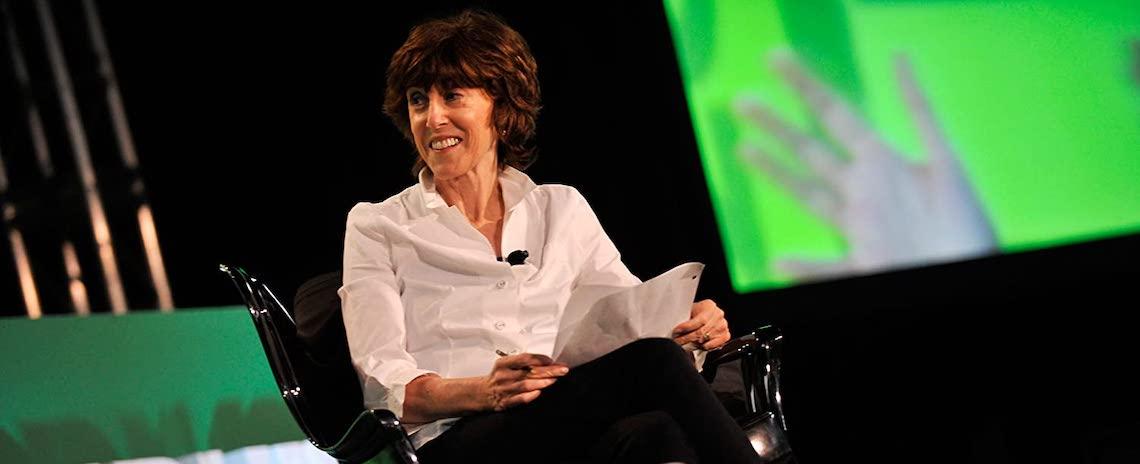[Photo: Joe Corrigan - Getty Images]
As the daughter of a pair of screenwriters, it was probably only a matter of time before Nora Ephron ended up following in her parents’ footsteps. Adamant about diverting from the path before her, Ephron found success as a budding journalist in the late ’60s and early ’70s. Timed perfectly with the battle for equal rights for men and women in the workplace, Ephron’s stint at Newsweek made her a pioneer for young girls hoping to grow up to be reporters. As it turns out, though, those years in the newsroom are what ended up leading her to scriptwriting (and eventually filmmaking). Her marriage to Carl Bernstein, key investigative reporter in the Watergate scandal, resulted in her helping with rewrites for All the President’s Men (1976), Alan J. Pakula’s film about the groundbreaking story. Notwithstanding this early experience with political drama and her Mike Nichols-directed script Silkwood (1983), it was the studio romantic comedy that Ephron the filmmaker would wind up revolutionizing and modernizing, a fact that might have pleased her parents, Phoebe and Henry Ephron — known best for such Golden Age titles as There’s No Business Like Show Business (1954) and Desk Set (1957).
Looking back, it’s clear just how foundational Nora Ephron’s work as a filmmaker truly was. At the time, many dismissed her script for When Harry Met Sally … (1989) as a shameless rip-off of Annie Hall (1977). Today, it’s apparent that When Harry Met Sally … is just as important as a yardstick against which today’s audiences evaluate rom-coms — if not more so, considering the sullied reputation of Annie Hall’s auteur. Viewers expect (maybe even prefer) a certain realism over the smarmy romance of many Old Hollywood films. They anticipate that the characters will speak with a bit of sarcasm and mockery when discussing love, almost as if they’re sick and tired of it. Most of all, audiences expect a climactic profession of true feelings to bring the couple together right before the end. Ephron wasn’t the first to bring these elements to the table, but she was absolutely responsible for presenting them to audiences in a manner that outclassed any other contemporary studio filmmaker.
Her sudden success in the late ’80s led to a complicated career of glorious highs and brutal lows throughout the ’90s and into the 2000s. The shadow of When Harry Met Sally ... proved to be long, with critics and audiences tending to compare each of her subsequent films to that masterwork rather than evaluating them in their own right. As a result, many notable post-1980s Ephron features are overdue for reassessment.
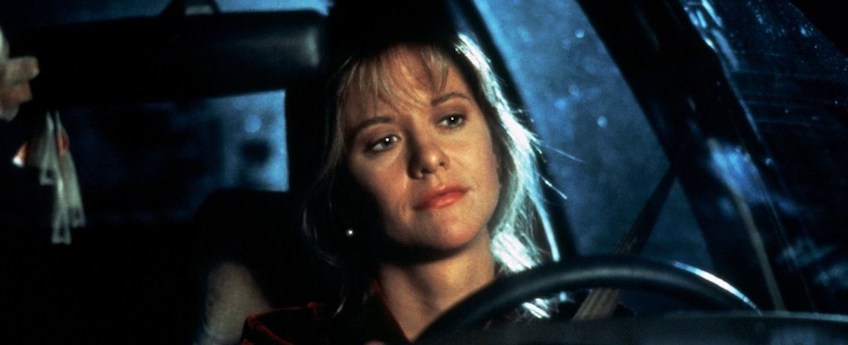
Ephron’s sophomore feature never should have worked. Beset by rewrites, recasts, and rearrangements seemingly from the moment the script left screenwriter Jeff Arch’s hands, Sleepless in Seattle confronted plenty of naysaying producers on its way up the studio ladder. One such critic was writer Nora Ephron, the journalist-turned-screenwriter who had struggled to find success in the years since her Rob Reiner-directed script When Harry Met Sally ... set the bar tremendously high. Her directorial debut, a bittersweet comedic drama called This Is My Life (1992), had done fine, but she was definitely searching for another hit. That’s when Arch’s script landed in her lap.
Drawing generously from Leo McCarey’s An Affair to Remember (1957), Arch had crafted a sentimental romance about Sam, a widower (Tom Hanks) who recounts his difficulties finding love on a call-in radio show, and Annie, an engaged woman (Meg Ryan) who becomes infatuated with him without ever seeing his face. Ephron found the script to be almost sickeningly sweet, lacking the kind of logical, realistic behavior that would appeal to an urbane Manhattanite like herself. Best known at the time for her sardonic take on the nuances of love in various columns, Ephron insisted that the script needed more of a derisive kick in place of its sappy emotionality. After a bit of retooling, Sleepless in Seattle was just what she needed.
In its earliest form, Arch’s original script retained the gooey and ineffective melodrama of McCarey’s dated film without offering anything for those living in today’s world. Ephron’s version maintains the outlines of An Affair to Remember but homes in on Sleepless’ thesis: global interconnectedness through mass media. Separated by thousands of miles, Ephron shows that Sam and Annie are perfect for each other through their shared experiences living in 1990s America. A risky experiment — producers doubted that audiences would stick around to watch a romance where the two leads don’t meet fact-to-face until the climax — turned out to be a triumph for Ephron, the new face of modern love. Looking back, Sleepless in Seattle effectively predicted the era of Internet dating and cross-country long-distance relationships simplified by technology. As it turns out, this was a theme she’d explore again soon enough.
Rating: A-
Sleepless in Seattle is available to rent or purchase from major online platforms.
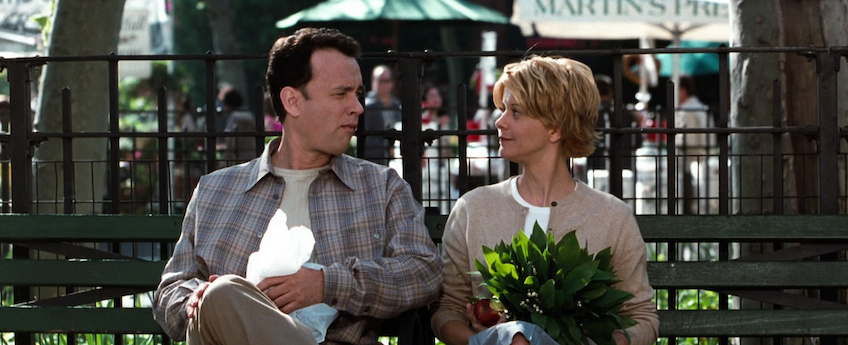
As if expectations weren’t high enough already, Ephron now had to top two of the most-lauded romantic comedies of the modern studio era. Sleepless more than doubled When Harry Met Sally …’s box-office gross and all but confirmed her status as one of the most sought-after filmmakers of the decade. However, this put her back in the same position she was in before landing Sleepless in Seattle — a filmmaker in search of a knockout. Her third and fourth features, Mixed Nuts (1994) and Michael (1996), were critical failures. Ephron’s career as a director might have been done for if not for Michael’s nine-figure gross (a relief after Mixed Nuts’ $8 million loss). If she wanted to soar again, she was going to have to mine from the same material as five years prior: the Old Hollywood romance and the Information Age.
Rooted in Ernst Lubitsch’s The Shop Around the Corner (1940), You’ve Got Mail reunites Ephron with her Sleepless stars to tell the story of Joe Fox (Tom Hanks), the arrogant son of a bookstore-chain baron, and Kathleen Kelly (Meg Ryan), the precious owner of a small local shop for children’s books. Like Lubitsch’s pivotal Christmas film, Ephron’s You’ve Got Mail pits Fox and Kelly against each other in the business world while cultivating their budding romance through anonymous correspondence. Instead of making them pen pals, however, Ephron modernizes the plot and has them meet in an online chat room.
Like wandering through an independent bookstore with shelves of titles stretching floor to ceiling, You’ve Got Mail feels familiar and comforting. For someone who prided herself on an incredible level of pessimism in her personal essays, Ephron comes across as a true romantic on the screen. This was due in large part to Hanks and Ryan, whose third collaboration together demonstrates the sort of indestructible chemistry that could only emerge over time. Notwithstanding her status as a thrice-married, twice-divorced misanthrope from New York, Ephron demonstrated how to construct an all-consuming love story that could turn even the most stone-hearted loner into a hopeless romantic. Still, the deep-seated cynic in her was longing to be released.
Rating: A-
You've Got Mail is available to rent or purchase from major online platforms.
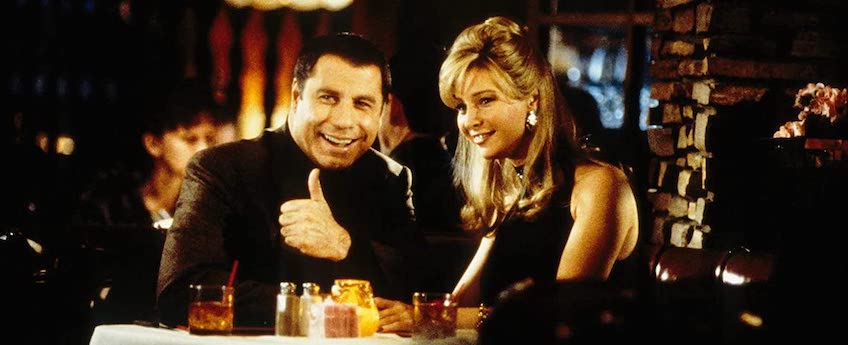
There’s no telling what actually drew Nora Ephron to Lucky Numbers, but it’s fair to assume it was its sharp wit. The first (and only) script she directed that she didn’t pen herself, the film is much more akin to the kinds of darkly comedic essays she crafted for the New Yorker than the love stories that had become her directorial brand. Written by Late Night with David Letterman alum Adam Resnick — whose unsuccessful Chris Elliot collaboration, Cabin Boy (1994), had already garnered early cult status — Lucky Numbers plays out like an East Coast spin on the Coen brothers’ Fargo (1996). A small-town weatherman (John Travolta) who dreams of a big-city gig sets out on a get-rich-quick scheme by scamming the state’s lottery with the assistance of Crystal (Lisa Kudrow), the girl who draws the winning Powerball numbers.
The film lost $50 million, bringing Ephron’s grand total to three financial successes and three box-office failures. This was perhaps because audiences had come to expect a certain type of film from the director, and Lucky Numbers was the furthest thing from the Ephron brand. An irreverently bleak comedy about despicable people doing appalling things to each other, the film didn’t stand a chance in the face of Ephron’s trilogy of mega-successful Meg Ryan-fronted rom-coms. Granted, the expectations-vs.-reality problem isn’t the only issue with Lucky Numbers. Resnick’s screenplay might have been vastly improved if Ephron had taken a crack or two at the draft. However, the film is far from the dud that critics deemed it at the time. Supporting cast members Tim Roth, Bill Pullman, and Michael Moore (the Michael Moore) are almost having as much fun as Travolta and Kudrow, which results in a frequently funny but fatally flawed anomaly in Ephron’s filmography. Unfortunately for her, there was still one more flop in the chamber.
Rating: B-
Lucky Numbers is available to stream on Amazon Prime, and to rent or purchase from other major online platforms.
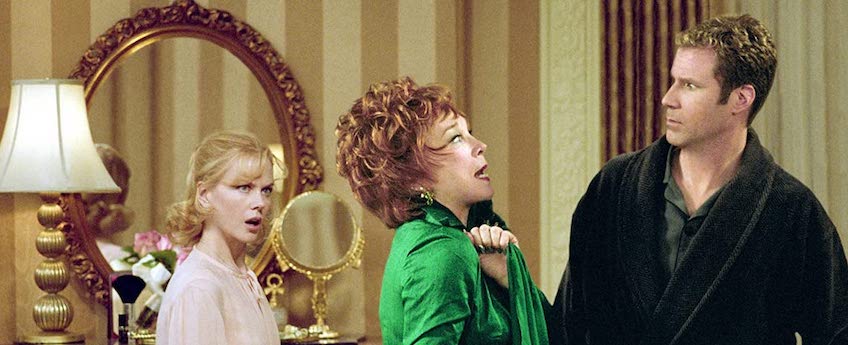
Contrary to popular belief, Nora Ephron’s much-maligned Bewitched is not a direct remake of the sitcom staple of the same name — it’s actually a movie about a bunch of Hollywood hacks rebooting Bewitched (1964-72) who inadvertently cast a real-life Samantha as the female lead. Isabel (Nicole Kidman) is a witch who wants to stop solving all her problems with magic and be a real person for the first time in her life. Jack (Will Ferrell), a washed-up actor notorious for his many box-office bombs, is looking for a way back into the fold. In an attempt to reignite his career, he’s planning a Darrin-centric Bewitched TV reboot. The problem is that he’s struggling to cast the perfect Samantha. Feeling hopeless, he runs into Isabel at a bookstore, sees her do her own version of the classic nose wriggle through the shelves, and begs her to audition for the role. Partly this is because of her ability to do the iconic gesture, but mostly it’s because he knows that he can overshadow an unknown actress, subsequently get the audiences to fall in love with him again, and ultimately save his floundering career.
Co-written with sister Delia — who also collaborated with Nora on This Is My Life, Mixed Nuts, Michael, and the Diane Keaton-directed dramedy Hanging Up — Ephron’s Bewitched is undoubtedly the most misunderstood component of her entire career. By deciding to focus on the perils of a doomed Bewitched revival, the Ephrons effectively indicate all the disappointments that are inherent in the needless rehashing of well-known intellectual properties. A true Bewitched movie — one that lifted the plot of the original series and adapted it for the big screen with no satire or self-awareness — would be just as guilty of these fatal flaws. As evidenced by Sleepless in Seattle and You’ve Got Mail, Ephron was almost certainly trying to do something similar-but-different here, using metatextual conceit to update outmoded stereotypes. Darrin is an archetype for wrongheaded creatives who hope to shamelessly harvest nostalgia for profit, while Isabel represents the film’s core idea: The only way to make a successful reboot is with a little bit of magic. As seen through this lens, Ephron’s Bewitched has been tragically misunderstood from the start. Of all her denigrated B-sides, this one is certainly the most deserving of a reevaluation.
Rating: B+
Bewitched is available to rent or purchase from major online platforms.
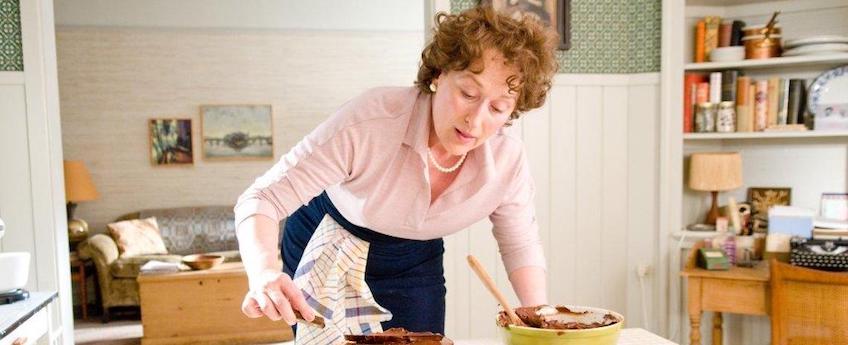
After a filmmaking career chock-full of equal parts creative success and misconstrued ventures, Ephron deserved to have one last triumph. Ephron was seen as either a monumental talent or a frustratingly fickle filmmaker depending on the movie in question, and the hot-and-cold critical reception was clearly beginning to take a toll. Ephron, who was once churning out a new film every year or two, had allowed five years to stretch between Lucky Numbers and Bewitched. Another four years passed until Julie & Julia, her eighth (and final) directorial effort before her unexpected passing in 2012.
Notably, Ephron was a marvel in the kitchen before she ever took a crack at journalism or filmmaking. Many of her personal essays feature delicious recipes sprinkled in between sharply written anecdotes about dinner parties or big-city living — some have even gone as far as crediting her with popularizing the trend of mixing food with prose, an approach that would be central to the food-blogger wave. For this reason, Julie & Julia should be considered the ultimate passion project for her. Cutting back and forth between famed chef Julia Child and a blogger named Julie Powell, Ephron’s film follows Child’s journey into the world of cooking and Powell’s personal mission to cook every recipe in Child’s first (and most famous) cookbook.
Everything that cements Ephron as an essential component in modern studio filmmaking is present here: a gripping true-to-life story of a historical figure that’s also a touching modern love story in the mold of Sleepless in Seattle and You’ve Got Mail. Julie & Julia is every bit as riveting as her work on historical dramas such All the President’s Men and Silkwood. It’s also somehow fitting that Ephron would be the one to make the first Hollywood film based on a blog, given her foresight on the importance of Internet dating. A two-sided encapsulation of everything that makes Ephron Ephron, this final entry in her distinctive filmography feels like the first film that Nora made exclusively for her own enjoyment. After failing to consistently and simultaneously please executives, audiences, and critics, she managed to achieve something delectable simply making it for herself.
Rating: B
Julie & Julia is available to stream from Netflix, and to rent or purchase from other major online platforms.

